20 start with E start with E
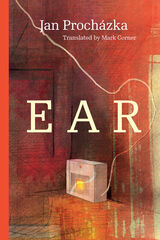
A deputy minister in the Communist Party of Czechoslovakia, Ludvík enjoys all the luxuries that success in the party affords him, but he must be careful: he’s under no illusions about the secret police bugging his apartment. Luckily, he and his wife, Anna, know where the bug is and where they can safely converse. However, any comfort they feel disappears the evening they attend an official party, where they learn that Ludvík’s boss has just been arrested after presenting a report written by Ludvík himself. Is Ludvík next? Back home after the party, the couple must get past unresolved marital tensions to get rid of absolutely anything that could incriminate them—all while contending with the strange men outside their apartment and the bug inside.
Penned under the oppressive watch of Soviet authorities in 1960s Czechoslovakia—but touching on still-current themes of surveillance and paranoia—this cinematic thriller is as tense and timely as ever. A promising Party member who became persona non grata after the Soviet occupation of Czechoslovakia, author Jan Procházka knew firsthand the gnawing terror of life in a surveillance state: after his death in 1971, the new tenants of his apartment discovered twelve hidden listening devices. As Ear makes terrifyingly clear, the most frightening horror stories are the ones closest to everyday reality.

In notes for each story, additional context is provided regarding locations, occupations, and individuals. All of this enriches a critical understanding of Tennessee Williams’s major works such as The Glass Menagerie, A Streetcar Named Desire, Cat on a Hot Tin Roof, Night of the Iguana, and Suddenly Last Summer.
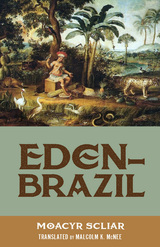

Lady Fiammetta, the first-person narrator and protagonist, recounts how, although a married woman, she falls in love with a handsome young foreigner named Panfilo and, driven by irresistible passion, becomes his lover. Panfilo subsequently abandons Fiammetta and returns to his native land, where his elderly father is said to be dying. When he fails to keep his promise to return, Fiammetta, in what is the heart of the narrative, describes her longings, her anguish, and her despair. A host of contradictory sentiments drive her to desperation and to an unsuccessful suicide attempt. After a time, Fiammetta resumes her futile wait for Panfilo. She finally resolves to seek him out in his native land. Disguising her true intent from her husband, she secures his promise to help her in this undertaking. Addressing an exclusively female audience, Fiammetta warns them about the vicious ways of men. Her whole narrative, in fact, adds up to an indictment of men as both readers and lovers. Eliciting a remarkably wide range of responses from readers and critics, Fiammetta has been variously described as a pathetic victim of male cruelty; an irresponsible fool of a girl; a sophisticated, cunning, and wholly disingenuous female; and, finally, a genuinely modern woman. Whatever judgment we make of her, Fiammetta stands out among medieval women as an ardent and outspoken feminist.

Rather than consent to spinsterhood at age twenty-seven, Eleni Altamura sets sail with her seafaring father to Italy, where she is to study painting at the famed School of the Nazarenes. Once in Naples, Eleni flees her female identity and, disguised as a young man, walks with her father to Rome. Along the way she falls in love with her would-be husband while learning to navigate life in a man's world--as a man. But when love reveals her femininity, Eleni marries the father of her children, the first of the many tragedies she will have to endure. She continues to question her identity as her life choices spark rumors she may be a powerful, mad magician, or just another crazy old woman.

After serving time in mainland Italy for a minor theft, Elias Portolu returns home to Nuoro, in rural Sardinia. Lonely and vulnerable after his prison exile, he falls in love with his brother's fiancée. But he finds himself trapped by social and religious strictures, his passion and guilt winding into a spiral of anguish and paralyzing indecision. For guidance he turns first to the village priest, who advises him to resist temptation; then he turns to the pagan "father of the woods," who recognizes the weakness of human will and urges him to declare his love before it is too late.

An American literary take on the Nordic noir genre
Unfolding during the moody Pacific Northwest winter of 1951, we follow Bernadette Baston, scholar of child development and language acquisition, as she travels to a penitentiary on the remote island Elita in the Puget Sound to consult on a curious case: two guards have discovered an animal-like adolescent girl living alone in the cold woods beyond the prison’s walls. There are few answers, but many people who know more than they are saying. According to official reports, the girl, dubbed Atalanta, does not speak. Is her silence protecting someone? The prison warden, court-appointed guardian, and police detective embroil Bernadette in resolving a secret that the tight-knit island community has long held, and her investment in the girl’s case soon becomes more personal than professional. As a mother, wife, and woman bound by mid-twentieth-century expectations, Bernadette strategizes to retain the fragile control she has over her own freedom, identity, and future, which becomes inextricably tied to solving Atalanta’s case.

But it’s the quiet, captivating dockworker and blues singer Hard Times (H.T.) who truly upends her life. As Eve grows closer to H.T., she finds herself drawn into his world, one filled with music, longing, and the ever-present shadows of prejudice. Their connection forces Eve to confront realities she’d never imagined, challenging the boundaries of her own perceptions and the risks of crossing societal lines. When Eve becomes a witness to a violent crime at a blues club, her life takes a dangerous turn. As she navigates the escalating threats, she leans on the strength of her newfound friends and the fragile, complex bond she shares with H.T.
Set against the vibrant yet turbulent backdrop of World War II–era California, Emerald City Blues is a heartfelt coming-of-age story. It explores the complexities of love, the power of friendship, and the courage it takes to forge your own path in an uncertain world. Eve’s journey is one of discovery—not just of the world beyond her hometown, but of the resilience and strength she never knew she possessed.

Set in a semi-fictional, post-industrial American warzone, this novel explores multiple facets related to the recent nonfictional decades of constant civil unrest, with a particular focus on the complicated nature of holding a personal creative life amidst a time of constant violence and change. Despite its heavy themes, the narrative is threaded throughout with veins of absurdist humor that invite and welcome us into the familial warmth of the narrator’s memories of friendship.


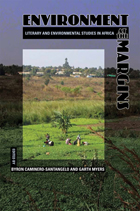
Environment at the Margins brings literary and environmental studies into a robust interdisciplinary dialogue, challenging dominant ideas about nature, conservation, and development in Africa and exploring alternative narratives offered by writers and environmental thinkers. The essays bring together scholarship in geography, anthropology, and environmental history with the study of African and colonial literatures and with literary modes of analysis. Contributors analyze writings by colonial administrators and literary authors, as well as by such prominent African activists and writers as Ngugi wa Thiong’o, Mia Couto, Nadine Gordimer, Wangari Maathai, J. M. Coetzee, Zakes Mda, and Ben Okri. These postcolonial ecocritical readings focus on dialogue not only among disciplines but also among different visions of African environments. In the process, Environment at the Margins posits the possibility of an ecocriticism that will challenge and move beyond marginalizing, limiting visions of an imaginary Africa.
Contributors:
Jane Carruthers
Mara Goldman
Amanda Hammar
Jonathan Highfield
David McDermott Hughes
Roderick P. Neumann
Rob Nixon
Anthony Vital
Laura Wright

Featuring short stories, poetry, drama, and creative nonfiction from around the world, this anthology showcases contemporary literature to envision the future of the environment. While environmental literature written in English has been dominated by English and American men who make solo explorations into an unspoiled natural world, Environmental Futures emphasizes local and indigenous writers contending with global landscapes that are far from pristine. Their work opens up decolonial perspectives from Anglophone Africa, South Asia, India, China, South America, the peripheries of Europe, and BIPoC North America. Introducing many writers who will be unfamiliar to English-speaking readers, this collection explores resistance to the oil economy, the impact of storms and natural disasters, extinction, and relations between humans and animals, among other themes.
The pieces are organized by geographical area in five sections: Africa, Asia, Europe, Latin America, and North America. Expert scholars and translators—Kurt Cavender, Roberto Forns-Broggi, Cajetan Iheka, Upamanyu (Pablo) Mukherjee, Irina Sadovina, and Shaobo Xie—selected the works and provided critical introductions for each section.

Written as a deathbed letter to the UCLA physician who has tracked Nina and the other Good Thumbs throughout their lives, Nina recounts her final days with the group and with Cole, the charismatic, sadistic fellow A12er with whom she has fallen madly in love, who charms and harms her in equal measures. An unlikely alliance with a tech billionaire, the return of her estranged mother, and the birth of the baby she never thought she’d have force Nina to reckon with the triumphs and mistakes of her life and to fight to leave her child in good hands.
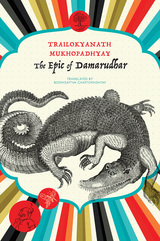
With its generic fusion of tall tales, science, myth, politics, and the absurd, the work also announces the emergence of the genre of modern fantasy in Bengal. A detailed introduction, bibliography, and extensive annotation bring to life the context for these stories, highlighting key intertexts, political nuances, and important mythological references. This volume also contains the first translation of a rare biographical piece on the author, which includes long autobiographical parts written by Trailokyanath himself. Carefully translated and thoroughly researched, this volume will introduce a trenchant Indian voice to the English-language readership.

For those who care about literature or simply love a good laugh (or both), Charles Portis has long been one of America’s most admired novelists. His 1968 novel True Grit is fixed in the contemporary canon, and four more have been hailed as comic masterpieces. For the first time, his other writings—journalism, travel stories, short fiction, memoir, and even a play—were brought together in Escape Velocity: A Charles Portis Miscellany, published in 2012 as his first new book in more than twenty years. This revised edition includes a new afterword by best-selling author Donna Tartt, who first published her remembrance in the New York Times following Portis’s death in 2020.
All the familiar Portis elements are in this collection: picaresque adventures, deadpan humor, an expert eye for detail and keen ear for the spoken word, and encounters with oddball characters both real and imagined. The collection encompasses the breadth of his fifty-year writing career, from his gripping reportage of the civil rights movement for the New York Herald Tribune to a comic short story about the demise of journalism in the twenty-first century. His three-act play, Delray’s New Moon, was performed onstage in 1996 and published in Escape Velocity for the first time.
Whether this is your first journey to the world of Portis or a long-awaited return to it, you’ll agree with critic Ron Rosenbaum—whose essay appears here alongside tributes by other writers—that Portis “will come to be regarded as the author of classics on the order of a twentieth-century Mark Twain, a writer who captures the soul of America.”

Christa Wolf tried for years to find a way to write about her childhood in Nazi Germany. In her 1976 book Patterns of Childhood, she explained why it was so difficult: “Gradually, over a period of months, the dilemma has emerged: to remain speechless or to live in the third person, these seem to be the options. One is impossible, the other sinister.” During 1971 and 1972 she made thirty-three attempts to start the novel, abandoning each manuscript only pages in. Eulogy for the Living, written over the course of four weeks, is the longest of those fragments. In its pages, Wolf recalls with crystalline precision the everyday details of her life as a middle-class grocer’s daughter, and the struggles within the family—struggles common to most families, but exacerbated by the rise of Nazism. And as Nazism fell, the Wolfs fled west, trying to stay ahead of the rampaging Red Army.
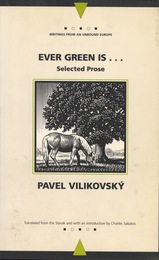

After a decade of miscarriages, Brooke Jensen is finally pregnant—with quadruplets. When she goes into labor after twenty-three weeks, Brooke and her husband rush to the hospital in the small town of Hanover, Wisconsin. For the 203 days that follow, they’re plunged into the terrifying and mysterious netherworld of the neonatal intensive care unit.
As the babies grow and struggle, fall turns to stark upper-Midwest winter. Brooke bonds with Dash, a senior nurse whose son, Landon, had been a patient in the NICU years earlier and is now straining his parents’ abilities to care for him. Both families bend and edge closer to breaking, and the questions mount: What does love look like? What does it mean to save a life?
A fiercely honest portrait of American parenthood, the American healthcare system, and Rust Belt communities, Everything We Could Do lays bare the ways that families are formed and remade in times of crisis.
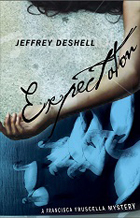
In his newest novel, Jeffrey DeShell draws on the musical innovations of Arnold Schoenberg—by turns traditional, serial, and atonal—to inform his grammar and language. Moving progressively through specific Schoenberg compositions, DeShell complicates the surface of his text into lyrical derivatives, all the while drawing us into a murder mystery like no other as Detective Francisca Fruscella pursues both the killer and her own complicated personal history.
By turns rapturous, rigorous, and gripping, Expectation is a thriller of another kind—and a bold venture to the limits of the mystery genre and language itself.
READERS
Browse our collection.
PUBLISHERS
See BiblioVault's publisher services.
STUDENT SERVICES
Files for college accessibility offices.
UChicago Accessibility Resources
home | accessibility | search | about | contact us
BiblioVault ® 2001 - 2025
The University of Chicago Press









